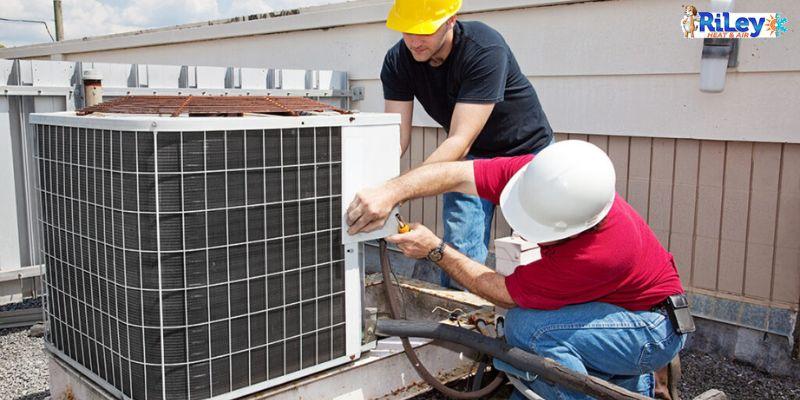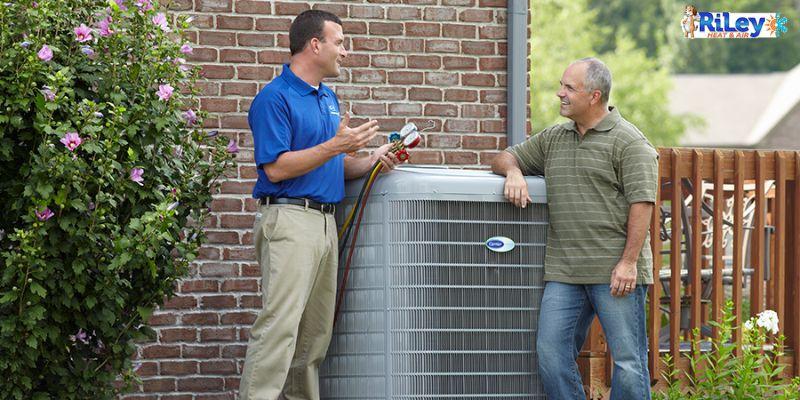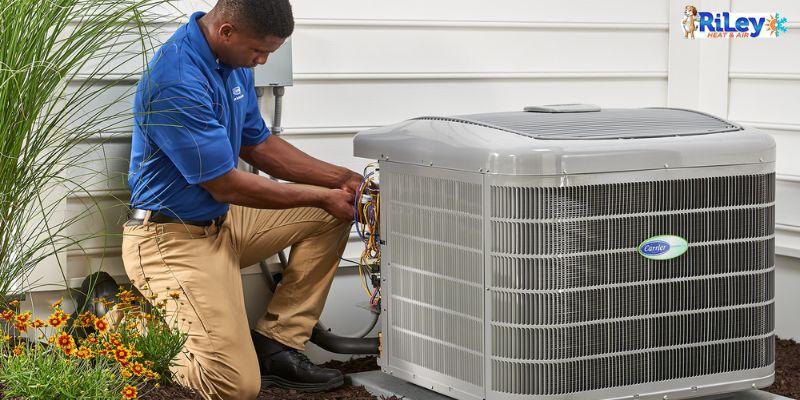
The Tell- Tale Signs: When to Replace Your Air Conditioning Unit
We depend increasingly on our air conditioners to keep our homes cool and comfortable as the temperatures increase. However, air conditioners have a limited lifespan, like any other device. They might experience issues, lose effectiveness, and eventually fail over time.
If your air conditioning unit is no longer functioning as it ought to, you will no longer enjoy the vast benefits it offers. While a simple HVAC repair can restore the functionality of your unit, frequent repairs and other issues indicate that your AC needs to be replaced. How do you determine when to repair your air conditioner, then? The following are some warning indicators to watch out for:
Indicators that Your Air Conditioning Unit Needs Replacement
1. The Air Conditioning Unit's Age

Your air conditioner's age is a reliable indicator of how well it is generally functioning. The average air conditioner lasts between 10 and 15 years. It might be time to consider a replacement if your device is getting close to or beyond this age range. Even if your appliance works properly, it may lose efficiency and cost you more to run than a recent model.
2. Frequent Repairs

It might be time to consider a replacement if you have to contact an HVAC service company to fix your air conditioner every summer. Frequent repairs are not only costly, but they also indicate that your appliance is nearing the end of its useful life. Long-term maintenance costs can be decreased by purchasing a new air conditioner.
3. Increasing Energy Bills
Air conditioners typically lose efficiency as they get older. As a result, they use more energy to chill your house now than when they were first installed. Your air conditioner might be to blame if you have observed a consistent rise in your energy costs over the past few summers. You can reduce long-term energy costs by upgrading to a newer, more efficient device.
4. Poor Performance
Your air conditioner may be nearing the end of its useful life if it struggles to keep your house cold. Poor performance can indicate a more serious issue, even if your device is comparatively new. It might be time to buy a replacement if your unit continually runs or cannot keep up with demand.
5. Strange Noises
Have you observed that your air conditioner is now louder than it once was? Strange noises like grinding, squeaking, or clicking are never normal and should not be interpreted as an indication of aging. Most air conditioners are designed to run at a barely audible noise level, so if your cooling system is making much noise, it is time to update to new equipment.
6. Limited Airflow and Lack of Cool Air
The most obvious indication that something is wrong with your AC is this. The unit is likely malfunctioning if you switch it on and the air does not start coming out cold immediately. Your piping or ductwork may be clogged, limiting airflow and preventing it from clearing up on. A lack of airflow, regardless of the source, indicates a problem that needs to be resolved.
7. Bad Smells
Strange smells typically signify an issue with heating and cooling systems, just as noticeable sounds do. When there are issues, your AC may only sometimes produce pure and unscented air. A burning or smoke odor may indicate severe issues that must be addressed immediately.
8. Moisture Buildup
All air conditioning units will produce some dampness, but those running efficiently should be able to manage it without any problems. If there is dampness or leakage around the air conditioner, you might be dealing with a refrigerant leak.
This will not only cause the system to function poorly, but it also puts your family's health at serious risk. Allowing the issue to continue could result in mold growth, even if the problem is only water accumulation.
9. Build Up of Water Beneath the AC
Condensate moisture may be present around your AC unit, but puddles or buildup with an unusual hue may be a bigger concern. Because refrigerants are toxic, leaks of this substance are very concerning. An expert in AC repair should investigate any condensation escapes that may result from clogged or damaged drain lines.
10. You have Resized Your Home
Your home's size and design impact how hard your air conditioner works. Purchase a larger-sized unit if you have recently added a room or expanded your house. An under powered unit must work harder to cool a room, placing it under more stress and causing the parts to wear out more quickly.
In addition to being good for your wallet, replacing your air conditioner may also be good for the earth. While more modern air conditioners use less harmful refrigerants to the ozone layer, older ones may use harmful refrigerants for the environment. Your carbon impact can be decreased by switching to a new unit, which is good for the environment.
You can take other actions to increase the effectiveness of your cooling system besides changing your air conditioner. Cleaning or replacing air filters regularly can improve the efficiency of your device and lower your energy costs. Consider putting in a programmable thermostat, which gives you better control over your home's temperature.
Conclusion
In order to keep our homes comfortable during the weather, air conditioners are necessary. However, they do not last eternally, just like any other appliance. You can tell if it is time to replace your air conditioner by looking for the telltale symptoms of an aging unit. Remember that purchasing a new, more efficient device can reduce your energy costs and avert more expensive future repairs.
COMMENTS
LEAVE A COMMENT







“The Tell-Tale Signs: When to Replace Your Air Conditioning Unit” is an informative and timely article. It highlights the importance of recognizing the warning signs that indicate it’s time to replace your air conditioning unit. As someone who has experienced the frustration of a failing AC system, I appreciate the clear explanations provided in the article. It’s crucial to pay attention to issues such as frequent breakdowns, rising energy bills, and inadequate cooling performance. The tips shared in this piece will help homeowners make informed decisions and ensure their comfort during the hot summer months. Kudos to the author for shedding light on this important topic!
This is a great article on maximising energy efficiency with HVAC upgrades. As a homeowner, it can be overwhelming to determine the most efficient and cost-effective upgrades to make to your HVAC system. This article comprehensively analyses the different HVAC upgrades available and how they can impact energy efficiency and utility bills.
I appreciated the breakdown of the different types of upgrades, such as installing a programmable thermostat, upgrading to a high-efficiency furnace or AC unit, and adding insulation to your home. Thanks for sharing.